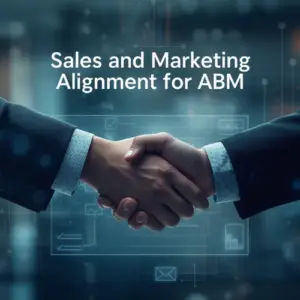
Key Takeaways
- Classic processes relied on manual coordination
- AI marketing operations processes automate repetitive work
- Human oversight ensures ethical AI-driven decisions
- Transformation requires strategy, tools, and culture shifts
- Future blends human creativity with AI efficiency
Modern marketing leaders envision operations that are fast, data-driven, and seamlessly scalable. In this ideal state, AI marketing operations processes power campaign execution, automate routine tasks, and provide predictive insights that help teams focus on strategy and creativity.
But most organizations still depend on classic marketing operations processes—manual coordination, siloed reporting, and rigid workflows—that limit speed and flexibility. Therefore, the real opportunity lies in transforming these traditional steps into adaptive, AI-enabled processes that combine efficiency with governance. The contrast between the old and the new highlights not just a technological shift, but a leadership challenge to design marketing operations that truly align with future growth.
How Did Classic Marketing Operations Processes Work?
Classic marketing operations processes were designed in an era when manual effort drove every campaign. These processes emphasized:
- Centralized planning and approvals for campaign execution
- Manual data entry and reporting from multiple systems
- Human-driven segmentation and targeting using spreadsheets and CRM exports
- Rigid workflows where campaigns moved step by step without flexibility
While effective for ensuring structure, these traditional processes were often slow, error-prone, and limited in scalability. The emphasis was on control, but this frequently came at the cost of agility and speed.
What Defines AI Marketing Operations Processes?
AI marketing operations processes leverage automation, machine learning, and intelligent orchestration. They fundamentally reshape workflows by:
- Automating repetitive tasks such as lead scoring, tagging, and email personalization
- Analyzing customer data at scale to uncover patterns humans would miss
- Generating predictive recommendations for campaign timing, content, and channels
- Orchestrating multichannel engagement in real time with minimal human intervention
Instead of relying on teams to manually connect steps, AI enables marketing systems to self-adjust, optimize continuously, and deliver personalized journeys for each customer segment.
Where Do Classic Processes Still Hold Value?
Despite the surge of AI marketing automation processes, classic methods are not obsolete. Certain areas still benefit from human-led structure:
- Compliance reviews and approvals where accountability is non-negotiable
- Strategic planning for brand direction and messaging consistency
- Relationship-driven campaigns where nuance outweighs automation
- Change management practices to align teams on new tools and methods
In these areas, classic processes provide a framework for governance and organizational discipline, ensuring AI-driven activities remain accountable.
What Are the Benefits of AI in Marketing Operations?
Organizations adopting AI in marketing operations are realizing measurable advantages:
- Speed and efficiency: Campaigns launch faster with automated workflows
- Scalability: Teams can manage larger audiences with the same resources
- Personalization at scale: AI adjusts content and offers dynamically
- Deeper insights: Predictive analytics identify high-value prospects sooner
- Resource optimization: Skilled professionals focus on strategy, not repetitive tasks
These benefits position AI marketing operations processes as a driver of both competitive edge and sustainable growth.
What Challenges Should Leaders Anticipate in AI Adoption?
Adopting AI in marketing operations processes is not without its hurdles:
- Data quality issues can undermine AI accuracy
- Skill gaps in teams unfamiliar with AI-driven platforms
- Cultural resistance to replacing familiar manual workflows
- Compliance and ethical concerns around algorithmic decisions
- Integration complexities with legacy systems and CRMs
Overcoming these challenges requires thoughtful planning, upskilling programs, and cross-functional governance to ensure AI adoption is both effective and ethical.
How Is AI Transforming Marketing Process Optimization?
Classic marketing process steps, such as campaign planning, execution, measurement, and refinement, are now being reimagined with AI:
- Campaign planning: AI models predict which segments respond best
- Execution: Automation tools deploy across multiple channels simultaneously
- Measurement: Real-time dashboards reveal insights instantly
- Refinement: Machine learning continuously adjusts campaigns without manual intervention
This cycle accelerates marketing performance while embedding adaptability into the core of operations.
What Does the Future of Marketing Operations Look Like?
The future will likely blend AI-driven efficiency with human creativity. Marketing operations leaders should expect:
- Hybrid models combining AI-driven automation with human oversight
- Expanded ethical frameworks to govern AI’s role in personalization
- Smarter orchestration tools that unify processes across platforms
- Deeper collaboration between marketing, IT, and compliance teams
- Continuous innovation in marketing process automation and optimization
Ultimately, AI will not replace classic processes entirely. Instead, it will refine, accelerate, and expand what marketing teams can achieve.
Conclusion
Marketing operations are moving from manual, linear systems to dynamic, AI-driven processes that optimize campaigns in real time. Yet, the fundamentals of governance, strategy, and accountability remain essential. The leaders who succeed will be those who integrate AI with the discipline of classic operations, balancing efficiency with creativity. If your organization is looking to explore the benefits of AI in marketing processes, while staying aligned with best practices, consider partnering with 4Thought Marketing to design the roadmap that positions your team for long-term success.
Frequently Asked Questions (FAQs)
u003cstrongu003eWhat are classic marketing operations processes?u003c/strongu003e
Classic processes focus on manual planning, campaign execution, and reporting. They emphasize control, but often at the expense of agility and scalability.
u003cstrongu003eHow do AI marketing operations processes differ?u003c/strongu003e
AI processes automate repetitive work, analyze data at scale, and deliver predictive insights. They optimize workflows and support real-time personalization across multiple channels.
u003cstrongu003eWhat are the benefits of AI in marketing operations?u003c/strongu003e
AI improves speed, scalability, personalization, and insights. It frees up teams to focus on strategy while delivering better outcomes through process automation.
u003cstrongu003eWhat challenges exist in adopting AI marketing operations processes?u003c/strongu003e
Challenges include data quality, skill gaps, cultural resistance, compliance concerns, and integration with legacy systems. Addressing these requires planning and governance.
u003cstrongu003eWill AI completely replace classic marketing processes?u003c/strongu003e
No. Classic processes remain valuable in governance, compliance, and strategic planning. AI enhances, but does not eliminate, the need for human-led oversight.
u003cstrongu003eHow should leaders prepare for the future of marketing operations?u003c/strongu003e
Leaders should embrace hybrid workflows, invest in training, establish ethical frameworks, and collaborate across functions to ensure AI delivers sustainable value.





